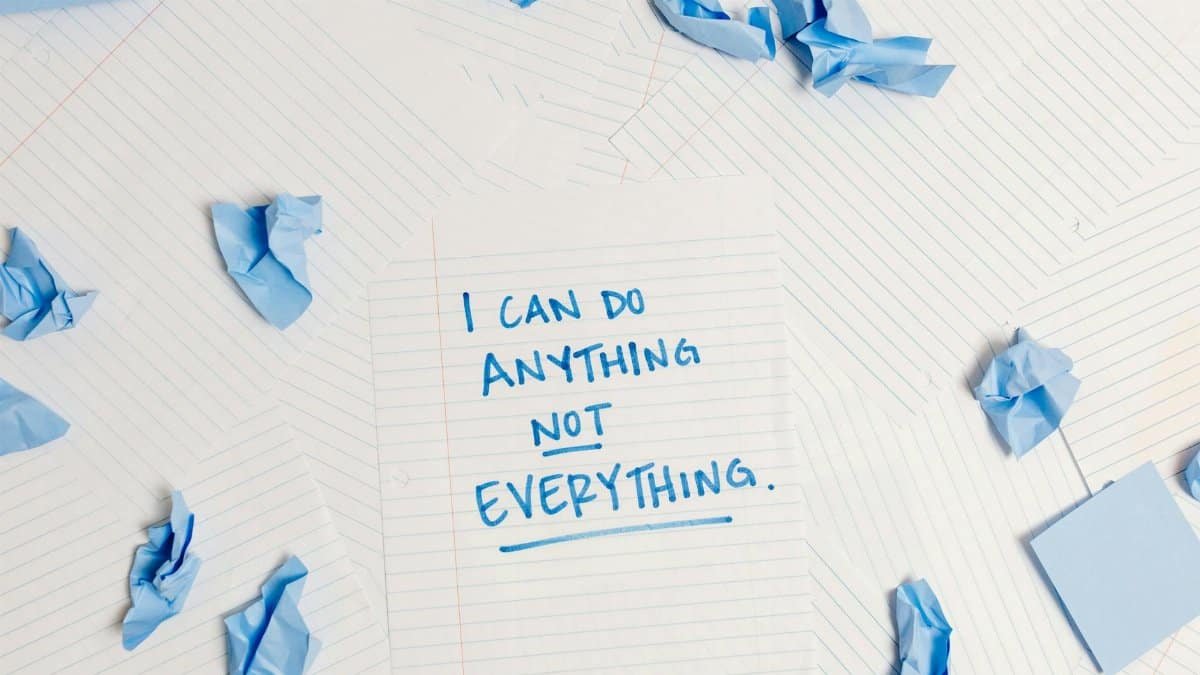In a world buzzing with distractions, a surprising number of Americans are turning to unconventional methods to sharpen their mental edge. According to a recent survey by the Pew Research Center, nearly 40% of adults reported experimenting with mindfulness or similar practices in the past year, up from 30% just a decade ago—a jump that underscores a growing hunger for mental clarity amid daily chaos. This trend points to the rise of consciousness hacks, simple yet powerful techniques designed to elevate awareness and cut through the fog of modern life. For many middle-aged readers juggling careers, families, and the relentless pace of 2025, these hacks aren’t just buzzwords; they’re practical tools for reclaiming focus. But what makes them effective, and how can they truly shift perspectives? As we delve into eight such hacks, starting with one that reorients how we see the world, it’s clear they’re reshaping how we navigate clarity in an increasingly complex era.
1. Shift Perspectives Through Role Reversal

Imagine stepping into someone else’s shoes—not literally, but mentally. This consciousness hack, often called perspective-shifting, encourages you to view situations from another angle, fostering empathy and breaking mental ruts. It’s particularly potent for clarity because it disrupts automatic thinking patterns that cloud judgment.
Take Sarah, a 52-year-old teacher from Chicago, who found herself stuck in a cycle of frustration with her colleagues. One evening, after a heated meeting, she tried this hack: She wrote a letter from her coworker’s viewpoint, detailing their stresses and motivations. “It was like flipping a switch,” she later reflected. Suddenly, the conflicts made sense, and her own responses became more measured. This isn’t just anecdotal; research backs it up. A study from the University of California, Berkeley, showed that perspective-taking exercises can reduce bias and enhance decision-making.Greater Good Science Center at UC Berkeley explores how such practices build emotional intelligence.
Yet, it’s not always straightforward. Sometimes, forcing a shift feels awkward, like trying to write with your non-dominant hand. Start small: Next time you’re in a disagreement, pause and ask, “What might they be feeling?” Over time, this builds a habit of broader awareness, leading to clearer insights in 2025’s fast-moving professional landscapes.
2. Embrace Mindful Breathing for Instant Calm
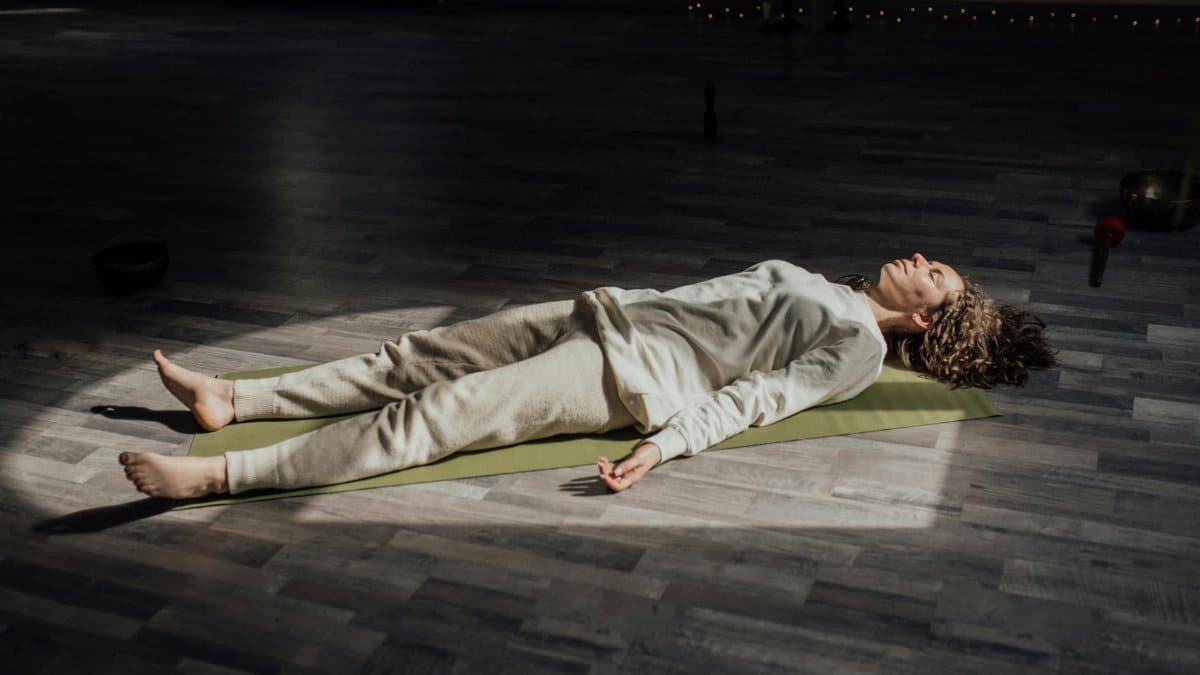
Breathwork might sound basic, but as a consciousness hack, it’s a gateway to immediate clarity. The idea is simple: Focus on your breath to anchor yourself in the present, quieting the mental chatter that often muddles thoughts.
Picture a bustling New York subway during rush hour—phones pinging, crowds pushing. Amid the frenzy, John, a 45-year-old accountant, pulls out this hack. He inhales deeply for four counts, holds for four, exhales for four. Within moments, his racing mind slows, allowing him to prioritize tasks for the day ahead. Online discussions often reveal similar stories; one recent account described feeling “like emerging from a fog” after just a few minutes of practice during a stressful commute.
Science supports this. The National Institutes of Health highlights how controlled breathing activates the parasympathetic nervous system, reducing stress hormones.NIH on Relaxation Techniques details studies showing improved focus and emotional regulation. Of course, it’s not a cure-all—deep breathing won’t erase deadlines—but it carves out mental space, essential for middle-aged folks balancing midlife demands.
Try it during transitions, like before a meeting. The rhythm becomes a reliable reset, turning chaotic days into manageable ones.
3. Journal to Unpack Hidden Thoughts
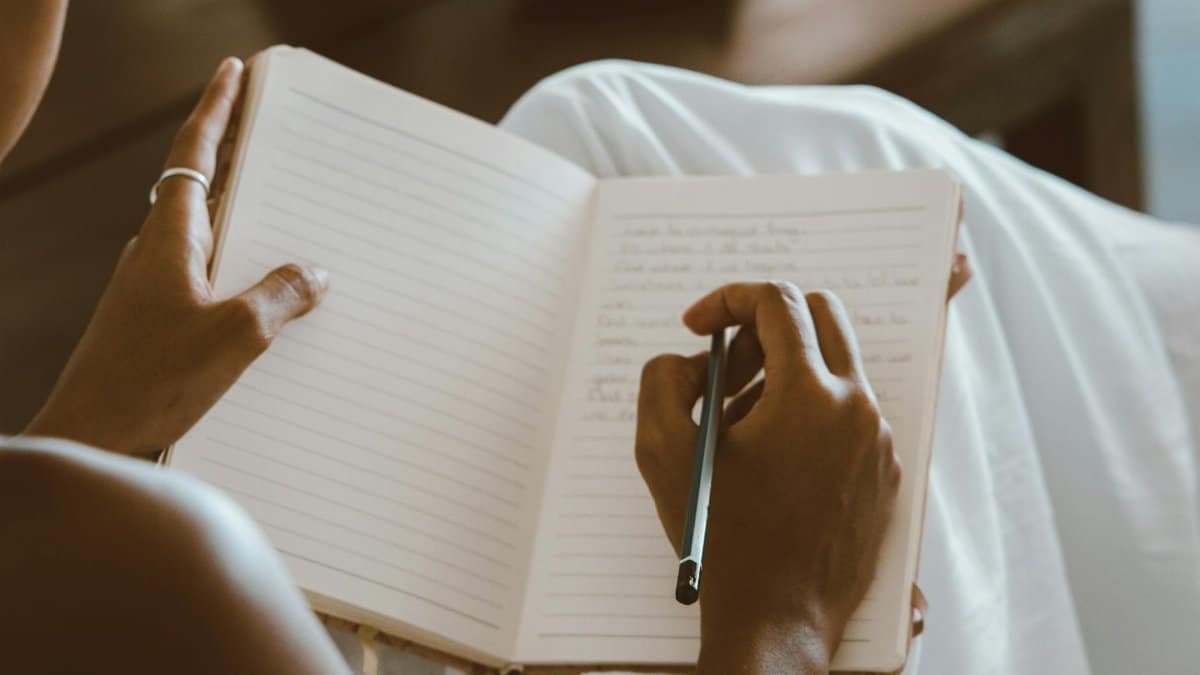
What if the key to clarity lies in scribbling your thoughts onto paper? Journaling as a consciousness hack isn’t about perfect prose; it’s about externalizing the jumble in your head, revealing patterns you might otherwise miss.
Consider Lisa, a marketing executive in her late 40s from Atlanta. Overwhelmed by career doubts, she began free-writing each morning—whatever came to mind, no judgments. Weeks in, she noticed recurring themes of unfulfilled creativity, prompting a bold pivot to freelance work. It’s a subtle shift, but powerful.
Experts agree. Harvard Medical School’s research on expressive writing links it to better mental health outcomes, including reduced anxiety.Harvard Health Publishing explains how this process clarifies emotions and goals. Still, resistance is common; some days, the blank page stares back accusingly. Push through with prompts like “What surprised me today?” In 2025, with digital overload rampant, this analog hack offers a refreshing counterpoint.
The beauty is in the discovery—journaling doesn’t just record life; it illuminates it.
4. Immerse in Nature to Reset Awareness
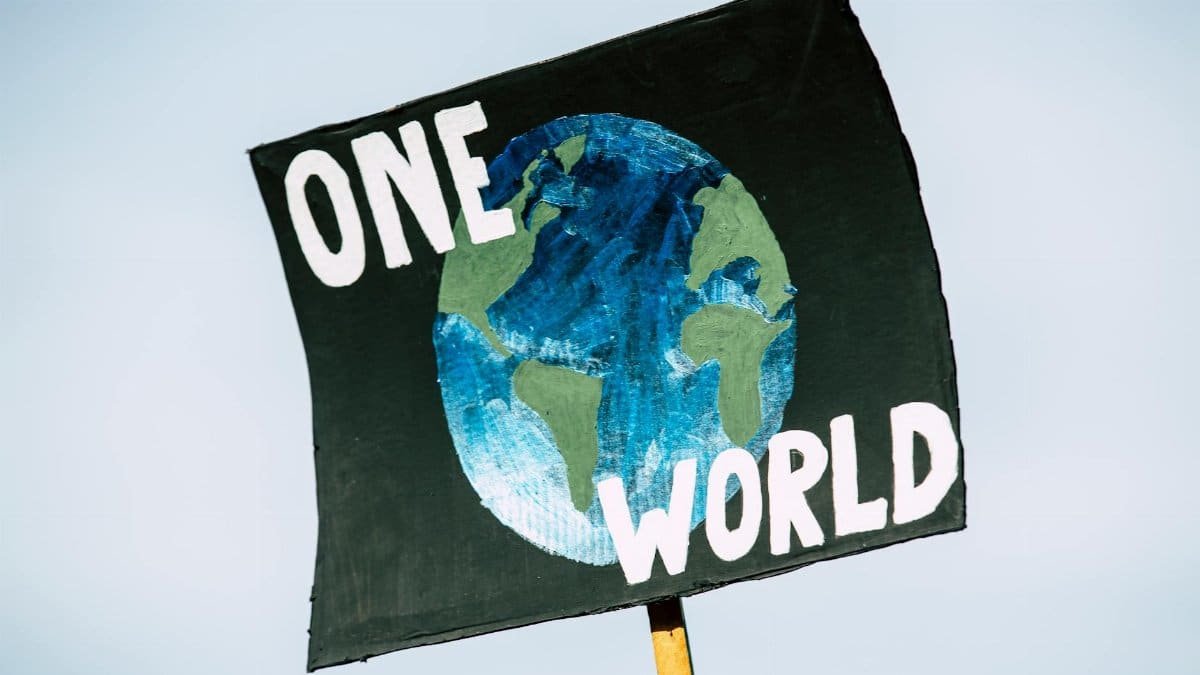
Stepping outside can be a profound consciousness hack, pulling you from indoor routines into a wider sensory world. Nature immersion heightens awareness, dissolving the mental haze that builds from screen time and urban noise.
Out in the Pacific Northwest, where forests stretch endlessly, Mike, a 50-year-old engineer, makes weekend hikes a ritual. “It’s like the trees whisper clarity,” he says, describing how the rustle of leaves and scent of pine clear his overworked mind. One trek led him to a breakthrough idea for a stalled project, born from that unhurried space.
This isn’t mere escapism. The U.S. Forest Service cites studies showing nature exposure lowers cortisol levels and boosts cognitive function.U.S. Forest Service on Wellness Benefits references research from environmental psychology. But access varies—city dwellers might struggle for green spaces. Even a park bench or potted plant can suffice, reminding us that clarity often hides in the natural world’s quiet rhythm.
As 2025 brings more virtual interactions, this hack grounds us, fostering a deeper consciousness of our place in the world.
5. Practice Gratitude to Reframe Daily Life
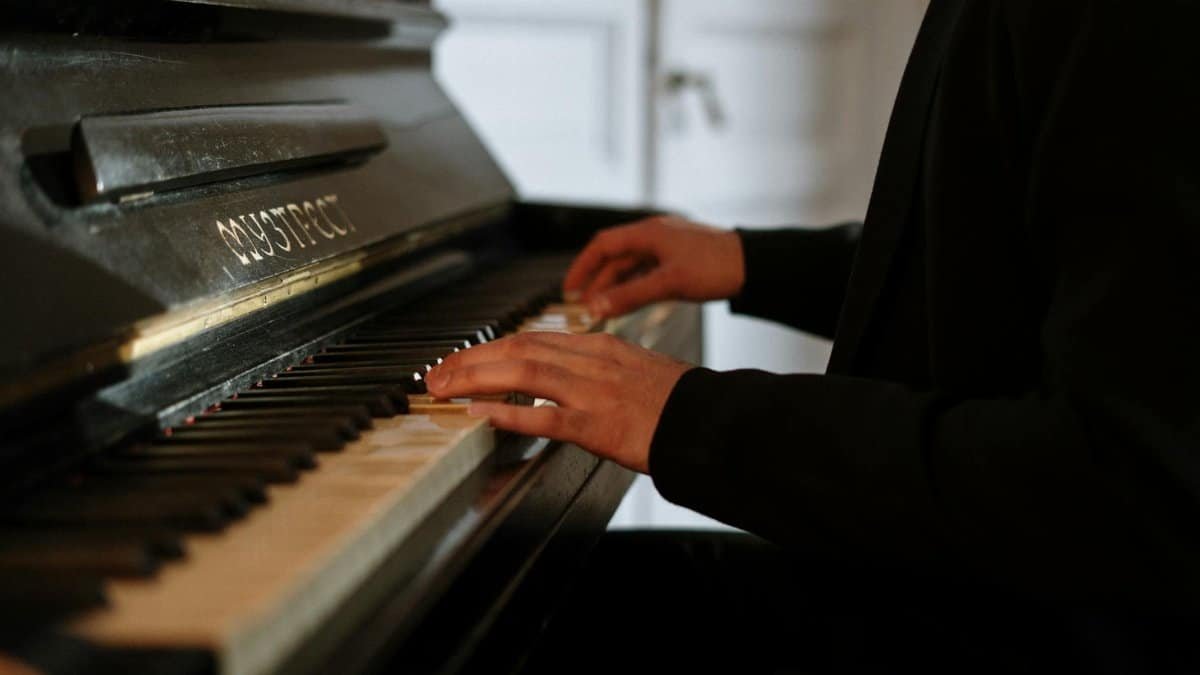
Gratitude isn’t fluffy advice; as a consciousness hack, it actively rewires your focus from lacks to abundances, sharpening clarity by highlighting what’s truly important.
In a quiet moment, reflect on three things you’re thankful for—simple as that. For Emily, a nurse in Texas navigating post-pandemic burnout, this became a nightly routine. Listing small wins, like a patient’s smile or a good cup of coffee, shifted her from exhaustion to renewed purpose. It’s transformative, yet understated.
A wealth of data confirms it. The American Psychological Association notes that gratitude practices enhance well-being and decision-making.APA on Gratitude draws from studies showing long-term mood improvements. Challenges arise when life feels overwhelmingly negative; starting small helps. In our current year, with economic uncertainties lingering, this hack builds resilience, turning vague dissatisfaction into pointed appreciation.
It’s a gentle nudge toward seeing clearly, one thankful note at a time.
6. Digital Detox for Mental Space

Unplugging might feel radical, but this consciousness hack creates breathing room by limiting digital noise, allowing deeper thoughts to surface.
Think of it as a tech sabbath. David, a 48-year-old writer from Boston, designates Sunday evenings screen-free. No emails, no scrolls—just books and conversation. “Clarity rushes in like a tide,” he observes, often sparking creative ideas lost in the daily grind.
Supporting evidence abounds. The Pew Research Center’s reports on internet use reveal how constant connectivity contributes to information overload.Pew Research on Digital Habits ties excessive screen time to reduced focus. Detoxing isn’t easy—FOMO creeps in—but setting boundaries, like app limits, eases the transition. In 2025, as AI integrates further into daily life, this hack preserves human consciousness from algorithmic overload.
Reclaim your mind, and watch clarity emerge from the silence.
7. Question Assumptions to Challenge Biases
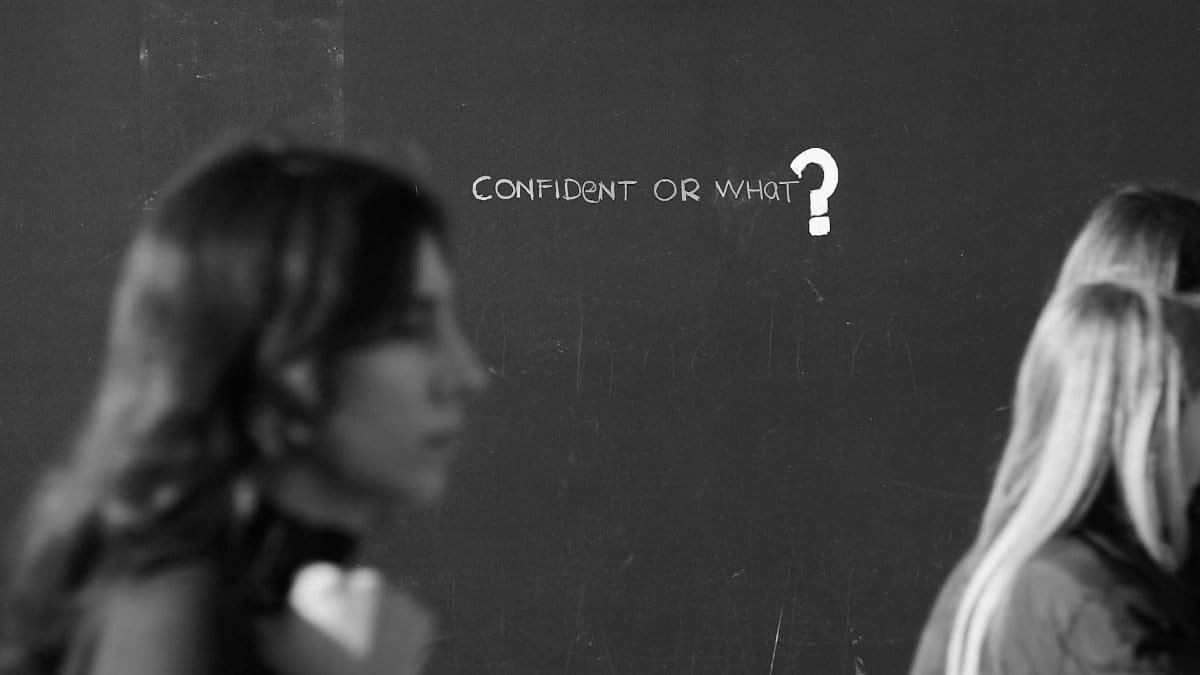
This hack dives into self-inquiry: Actively challenge your beliefs to uncover blind spots, leading to sharper, more nuanced clarity.
A rhetorical question kicks it off: Why do I think that? For Karen, a retiree in Florida, questioning her long-held views on family dynamics revealed outdated patterns, freeing her to build stronger relationships. It’s uncomfortable, like peeling back layers, but rewarding.
Psychological insights from Stanford University emphasize how interrogating assumptions fosters growth.Stanford Graduate School of Education discusses its role in learning. Yet, overdoing it can lead to paralysis; balance with action. Amid 2025’s polarized discourses, this consciousness hack promotes open-mindedness.
It turns rigid thinking into flexible insight, one query at a time.
8. Meditate on Impermanence for Deeper Insight

Finally, contemplating impermanence—everything changes—serves as a consciousness hack to detach from fleeting worries, inviting profound clarity.
In practice, it’s sitting with the idea that this too shall pass. For Tom, a veteran in Colorado facing health scares, this mindset shifted panic to acceptance, clarifying his priorities. “It’s liberating,” he shares.
Buddhist traditions inspire this, but secular studies from the NIH affirm its benefits for mental health.NIH Study on Mindfulness and Impermanence links it to reduced rumination. Resistance comes from fear of loss, but gentle exposure builds resilience. As we face 2025’s uncertainties, this hack anchors us in the present.
Embrace change, and clarity follows naturally.
